6. Alphaville (1965)
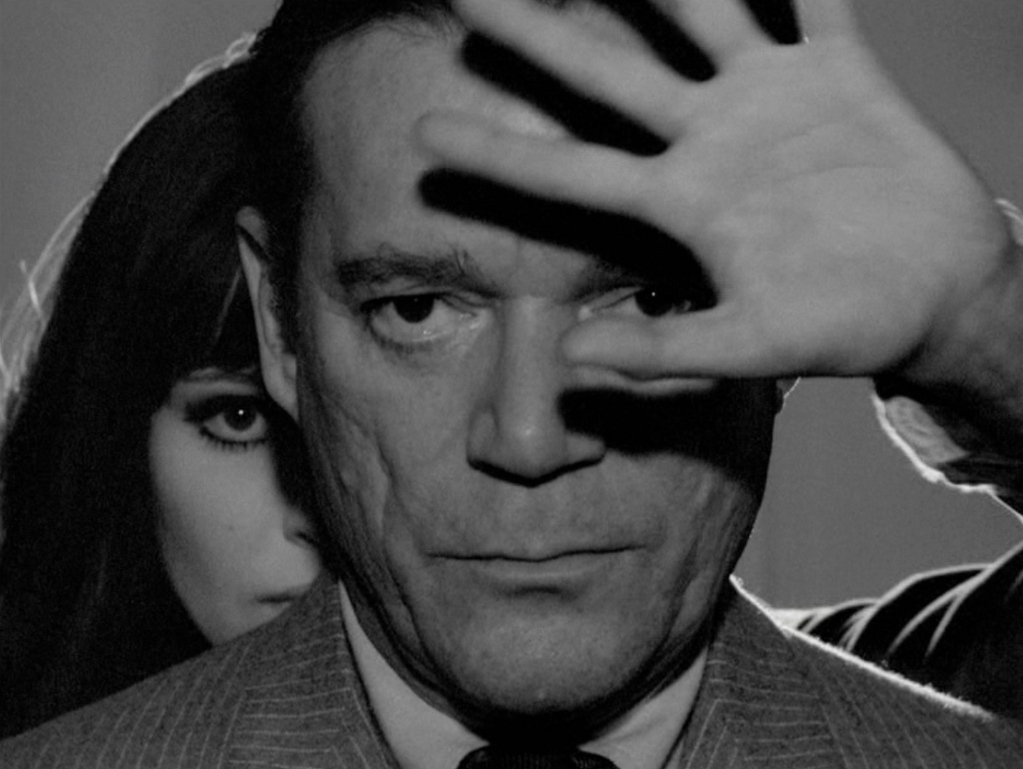
As a young filmmaker growing up in a multicultural French-speaking city like Quebec, Denis Villeneuve was quickly drawn into foreign cinema, exploring the likes of Truffaut, Godard, Resnair or Varda. Considering his early output as a director of his own, it’s easy to see how heavily inspired by the French New Wave he was, especially with the first few of his French-speaking artsy productions like August on Earth or Maelström.
When it comes to a staple of the movement as politically minded as Godard, a genre piece like Alphaville is not the most obvious choice. In fact, it’s one that kind of flies under the radar compared to his usual line-up of hits (Breathless, Vivre Sa Vie and Contempt). In truth, Alphaville presents more similarities to the rest of his work than given credit for a neo-noir set in a dystopian technocracy. The story puts us in the shoes of Lemmy Caution, a weary detective sent to the planet-city of Alphaville to investigate the disappearance of another agent, a mission that brings him closer to Alpha 60, an ominous computer and Alphaville’s undisputed overlord that runs it with an iron fist.
Godard uses a noirish plot full of dark rooms, trench coats and empty Parisian-like alleys to put an arthouse spin on the sci-fi genre, meditating about the dangers of individualism and conformity, and how art and emotion can survive against the tyranny of technology.
7. Blade Runner (1982)
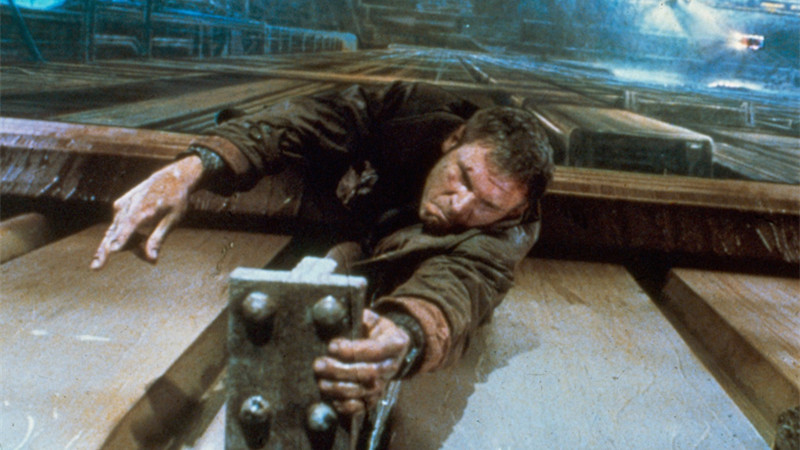
It makes sense that the man who helmed the sequel to one of the most acclaimed sci-fi movies in history was a fan of it in the first place.
Speaking to Cannes in 2017, the Canadian admitted that paying Ridley Scott’s classic justice with Blade Runner 2049 was the hardest thing he’d done in his career so far, especially since he was “appropriating someone else’s dream, taking the universe of a master who did a masterpiece, digesting it and making it my own”. For all his initial doubts, after Scott’s blessing, Villeneuve couldn’t say no to such a once-in-a-lifetime opportunity, claiming that the original had been a part of his education, constructing his filmmaker DNA and one of the foundations of why he’s here today.
Coming up with a film that could stand the test of time, reflecting on the themes of the original but making it its own thing was a daunting task, but it’s safe to say Villeneuve delivered. During an interview with Time Magazine, he explained that he wanted to stay true to film noir as the first movie was, carrying “an atmosphere of powerful melancholy” and the world to be “one of bleakness and gloom but to have sparks of beauty”.
8. Snowpiercer (2013)
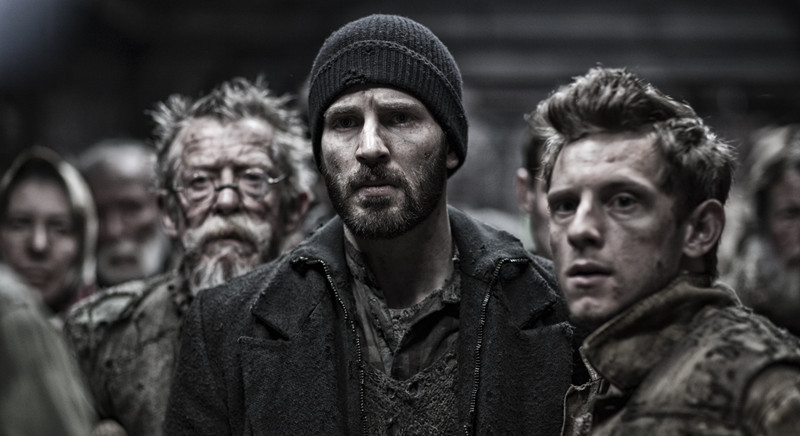
While he was a member of Cannes’ Festival jury, Denis Villeneuve explained that sci-fi appeals to him the most because it allows him to tackle difficult subjects such as religion or other aspects of society that are off-limits, with a great deal of freedom and distance. South Korean director Bong Joon-ho surely felt the same when coming up with Snowpiercer. Long before he took the world by storm with Parasite, his brilliant dissection of class warfare that swept all kinds of international film awards, Bong explored similar themes with this dystopian thriller.
Snowpiercer gets the best of both worlds; it provides both blockbuster thrills and Bong’s razor-sharp commentary. The movie introduces us into a grim post-apocalyptic future where all humanity has been wiped out except for the passengers of a futuristic train that perpetually travels around the globe. The train adheres to a strict class system that isolates the rich, who enjoy a luxurious lifestyle in the front cars, from the poor, who are cursed to live precariously at the tail-end.
As far as cautionary tales with a sci-fi setting go, you’d be hard-pressed to find a better metaphorical heroic tale than Snowpiercer’s group of ragtag prisoners clawing their way back to justice by revolting against an oppressive elite.
9. Gattaca (1997)
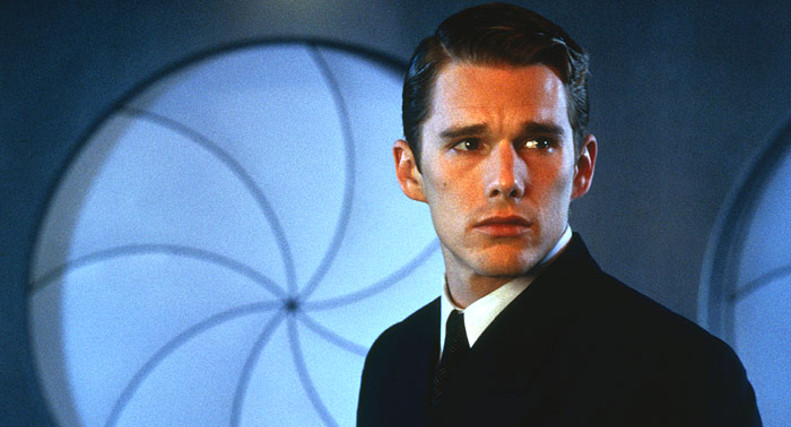
One of the biggest themes of the Blade Runner franchise is defining the root of our identity, exploring what really makes us human and on the other hand, the cruel ramifications of having an elitist society segregated in different classes by genetic engineering. One of the most poignant moments of Villeneuve’s sequel comes when the film subverts the “chosen one” trope by making its main character a simple nobody that eventually realizes his worth as an individual, refusing to bow down to society’s presumptions about his kind.
Gattaca strikes a similar chord by placing us in a dystopian future full of eugenics where the sole way of evaluating people’s potential and self-worth comes through DNA testing. The main character, Vincent Freeman, is part of society’s undesirables, grounded by his social status that tags him as an “in-valid” and forever doomed to spend his life at lowly jobs. Forever yearning to travel into outer space, he decides to fight his fate by purchasing the DNA of a genetically “valid”, assuming his identity to infiltrate an elitist space program.
10. Videodrome (1983)
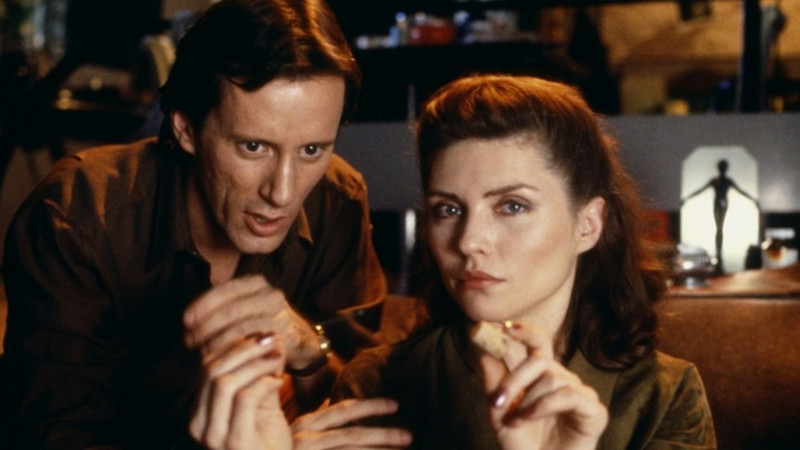
From the hand of a fellow Canadian director comes this deranged body horror. David Cronenberg’s classic puts us in a near-future where technology has infiltrated every aspect of our daily life, and where morbid curiosity gets the better of Max Renn, the sleazy CEO of a late-night TV channel. In his desperate search for new programming, he stumbles upon Videodrome, a show that exclusively consists of gratuitous torture, and decides to broadcast it in his late-night channel. This kicks off a nightmarish conspiracy hunt where reality and fiction seem to blend together.
Videodrome is an indictment of a society of digital junkies glued to their screens and anxiously waiting for their next fix of fabricated stories. Fast forward to forty years later and Videodrome’s verdict rings more true than ever, in a world dictated by technology and social media that has numbed us down and desensitized us towards sex and violence. Our connection with phones, computers and TV has only deepened since, so watching James Wood morph into electric wires and VHS tapes is as poignant today as it was back in 1983.